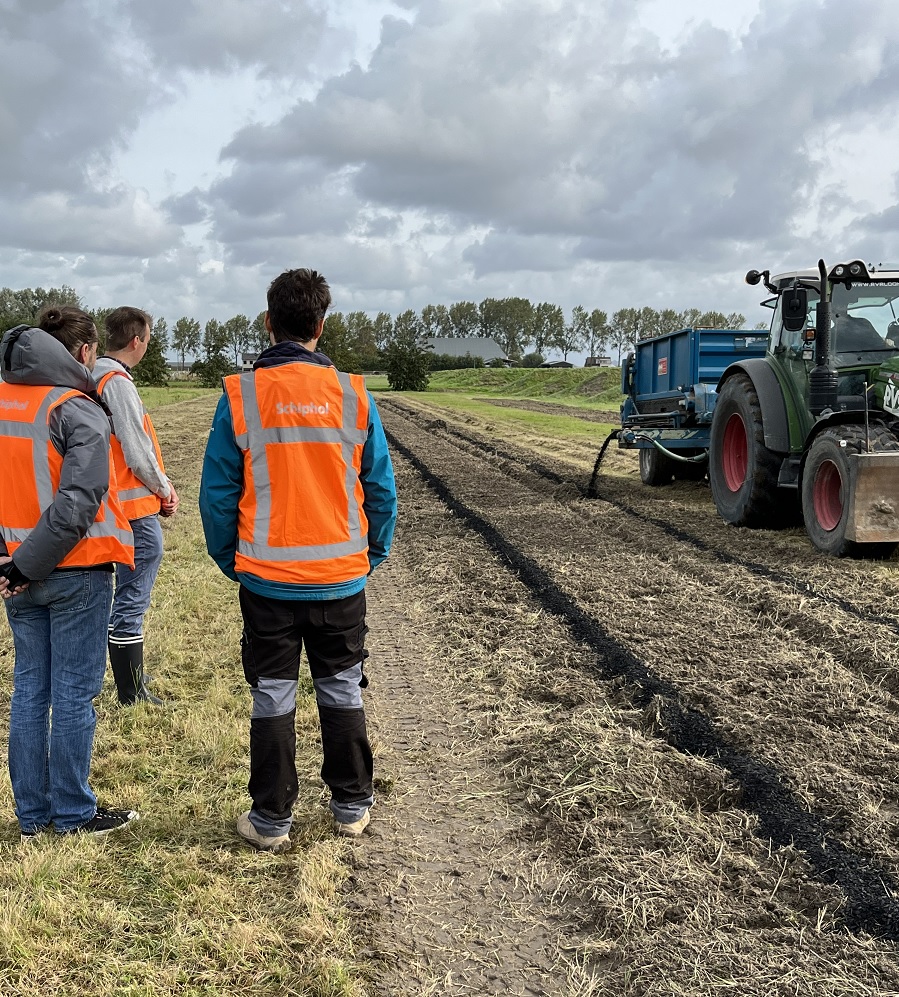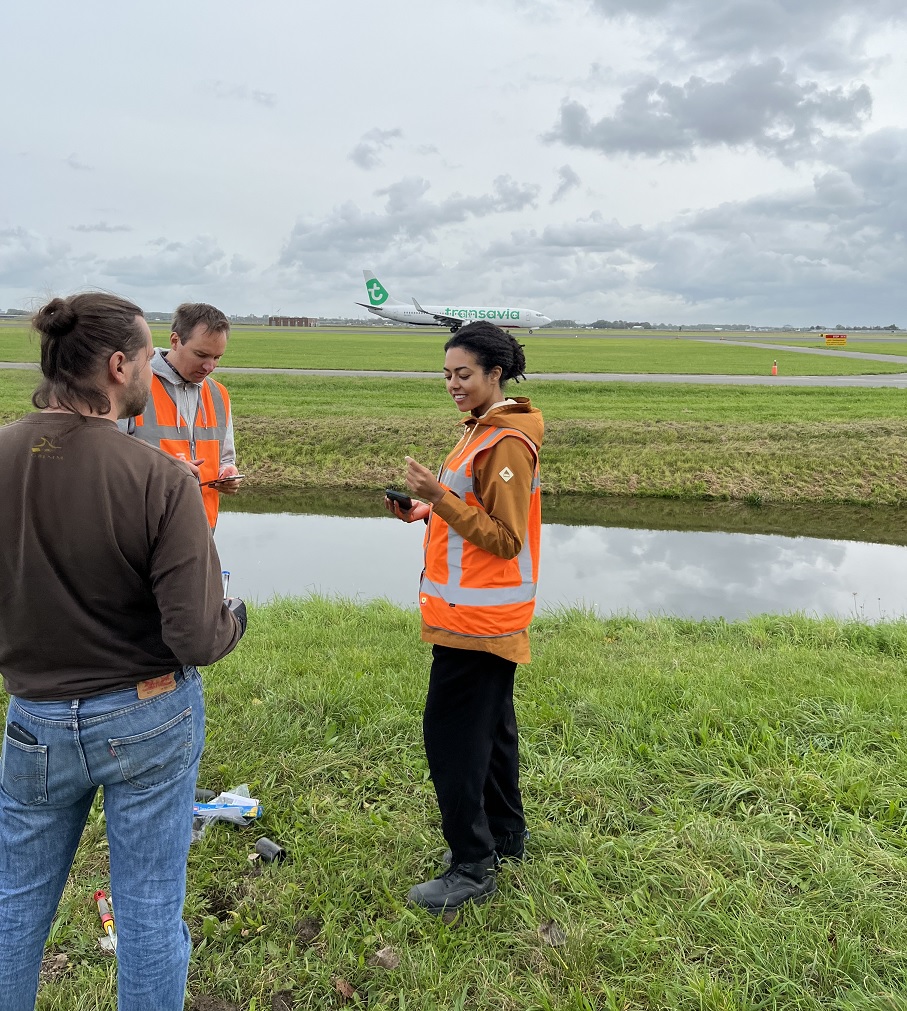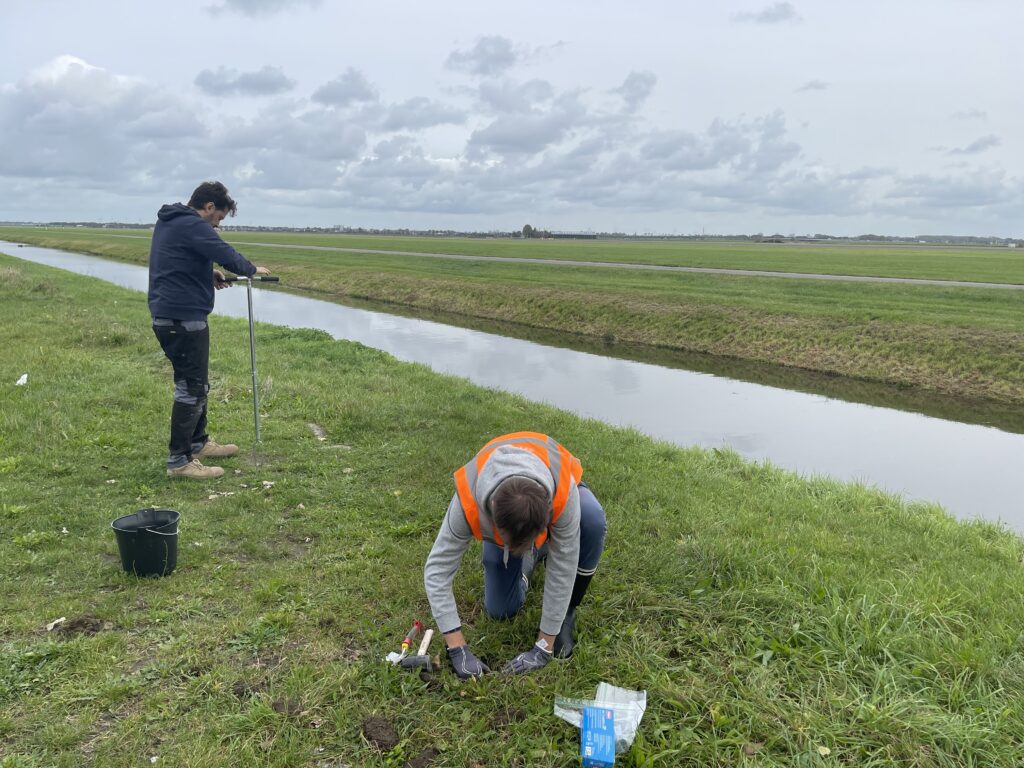October 2023
In the first week of October, the TULIPS’ Work Package 7 team started its latest field experiment. On a piece of agricultural land next to the Polderbaan, biochar has been incorperated into the land. It is the third and final location where the team is testing whether we can increase CO2 storage in the ground for a longer period of time by adding biochar to soil. Over the course of two years we will take samples from the land to keep track of the effects and assess the benefits. If the results are positive, we can scale-up this method to contribute to decarbonisation of airports.
The benefits of biochar
Biochar is a solid carbon-rich material obtained from the heating of biomass in the (near) absence of oxygen, in a process called pyrolysis. It is known for its exceptional carbon retention properties and is a nature based solution. It has the potential to play a pivotal role in mitigating climate change. By locking carbon into the soil, biochar can both enhance soil fertility and allow biodiversity to thrive as well as contribute to reducing greenhouse gas emissions. Recently biochar has been approved as Carbon Removal by the EU.


Two strips of land for monitoring
For the experiment, we divided a field near the airport into two distinct strips to examine the impact of biochar, otherwise known as charcoal, on carbon storage. On one of the strips, we dispersed biochar into the soil. The other strip will serve as the control group. Over the coming years, we will closely monitor and compare the carbon, biomass and other relevant organic and inorganic levels in both strips to assess whether biochar can effectively capture more carbon from the atmosphere.
Similar field trials at the airports of Turin and Larnaca
The same experiment is taking place at Turin airport in Italy and Larnaca airport in Cyprus. By doing field trials at three different locations with very different circumstances and different types of soil, we can assess whether biochar is widely applicable and scalable. Also, it allows us to use the biochar for different purposes, as there are many benefits.
Partners
The biochar used for the experiment was produced by POLITO and @RECORD, who were also responsible for the experimental design of the field trial. Other involved TULIPS partners, amongst others Soil.is and Egis participated in the soil sampling.
This experiment represents a small but significant step toward more sustainable and eco-friendlier aviation.

Read more about the biochar field experiment taking place at Torino Airport SAGAT
